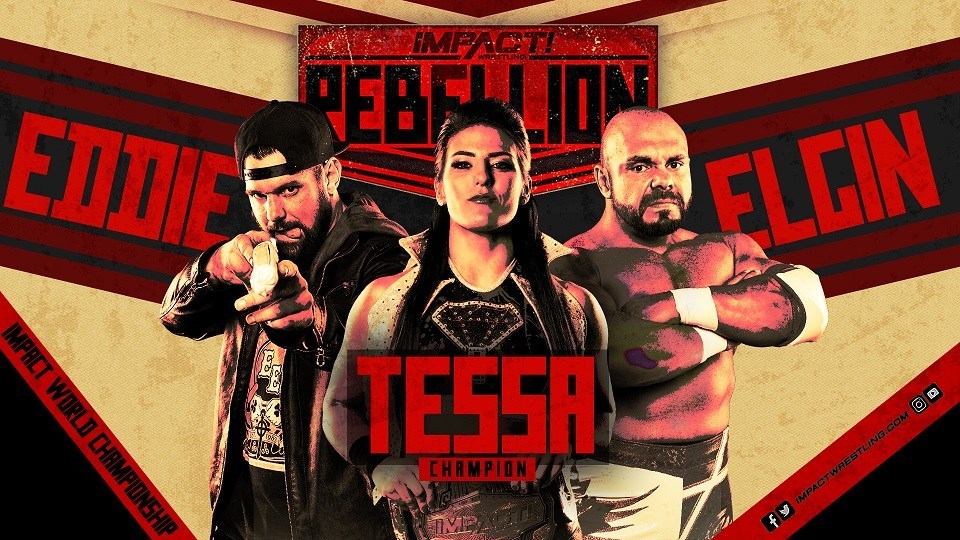January 12, 2020 is a date that will forever be remembered in the wrestling industry all over the world: It was on this day that a woman, the ‘Undeniable’ Tessa Blanchard, defeated Sami Callihan to win the Impact World Championship, a world title that prior to that point had been exclusively held by, and open only to, men. Although this was not the first time ever that a woman had won a promotion’s main title previously available only to men (for example, Princess KimberLee was the Chikara Grand Champion for 177 days), Impact is one of the most recognized promotions of the current era, and its top title has had an important legacy, being held by the likes of Sting, AJ Styles, and Kurt Angle.
Fans of pro wrestling have long become accustomed to the degradation, objectification, and disregard that women wrestlers have experienced; a world title win is therefore a powerful message about what is possible for women in wrestling. It also brought Tessa Blanchard face-to-face with two unexpected “challengers” — not actual wrestlers, but two factors that might make her victory a little less sweet: questionable booking, and questionable locker room behavior.

Making history is different than handling it
Intergender matches are not new: they have occurred in Japan and Mexico for decades, and they have also happened in major promotions in America, although not typically as main events. Impact Wrestling has now pushed the envelope of the intergender match, making a woman the main focus of the company (much to the chagrin of the Sandman). This brings us to the first “challenger” that Blanchard, the new face of the company, now faces: booking.
A champion requires good booking, especially one whose reign is supposed to last long. Tessa’s pathway towards the title had been foreshadowed well into 2019, when, quietly departing from the female wrestling-oriented Knockouts division of Impact Wrestling, she spent a major part of the year wrestling against men in intergender matches. Almost immediately after her title bout, she then started a rivalry against Ace Austin. It is safe to assume that there are no plans for her to return to the Knockouts Division any time soon. Moreover, because Tessa also had a title defense against another woman, Taya Valkyrie,there are also indications that from now on any woman can challenge for the Impact World Championship.
Unfortunately, I was disappointed that her first match after capturing the title ended in a loss for her, followed by a few tag team losses and matches ending in disqualifications. Of course, champions do not have to win all their matches, but they do require good booking. One would have hoped that the first female world champion in mainstream pro wrestling would have received a stronger push. At the moment of writing, Tessa Blanchard is scheduled to defend her title against Eddie Edwards and Michael Elgin in a three-way match – a match that seems to spotlight Elgin and Edwards more than it does Blanchard. I cannot know what the plan for her reign is nor for how long she is expected to keep the belt around her waist, but I do hope that moving forward her booking will improve.

While questionable booking is mostly out of her control, her reign at the top of the company has also been marked by something entirely within her control: her own locker room behavior.
Undeniable champion or undeniable bully?
On January 11, one day before the big match, Tessa Blanchard posted a tweet suggesting that women should support each other. A barrage of animosity quickly followed from fellow wrestlers, including AEW’s Shanna and NXT’s Chelsea Green, accusing her of locker room bullying, in addition to spitting and hurling racial slurs towards La Rosa Negra, a black wrestler, in Japan. Blanchard denied all those accusations. Later though, La Rosa Negra herself tweeted that the incident did indeed happen, but she spoke to Tessa Blanchard afterwards and forgave her. (Another black wrestler, Moose, in a surprising twist, took Blanchard’s side.)

The controversy surrounding Blanchard’s locker room behavior raises to the fore an issue repeatedly seen throughout the history of pro wrestling: the disjunction between a wrestler’s public persona and private life. Tessa Blanchard might be a good worker in the ring, but if her fellow wrestlers are to be believed, the real person is not the friendly face we see on TV.

What do we learn?
I do believe that a woman winning a major world championship has been good for whole wrestling industry. More than inspiration for other women wrestlers to keep pushing through barriers, Tessa’s championship also functions as a blueprint for other wrestling promotions to become more inclusive.
Although we cannot know with certainty the details surrounding the bullying and racism allegations, what we do know is that in pro wrestling, when a performer becomes the new face of a company, controversy often follows. The unresolved question for Tessa Blanchard and Impact Wrestling is whether Blanchard will live up to the expectations of a “face” champion, both in- and out-of-character, or whether her locker room behavior and personal failings will derail what otherwise might have been a huge step forward for women in the wrestling business.
